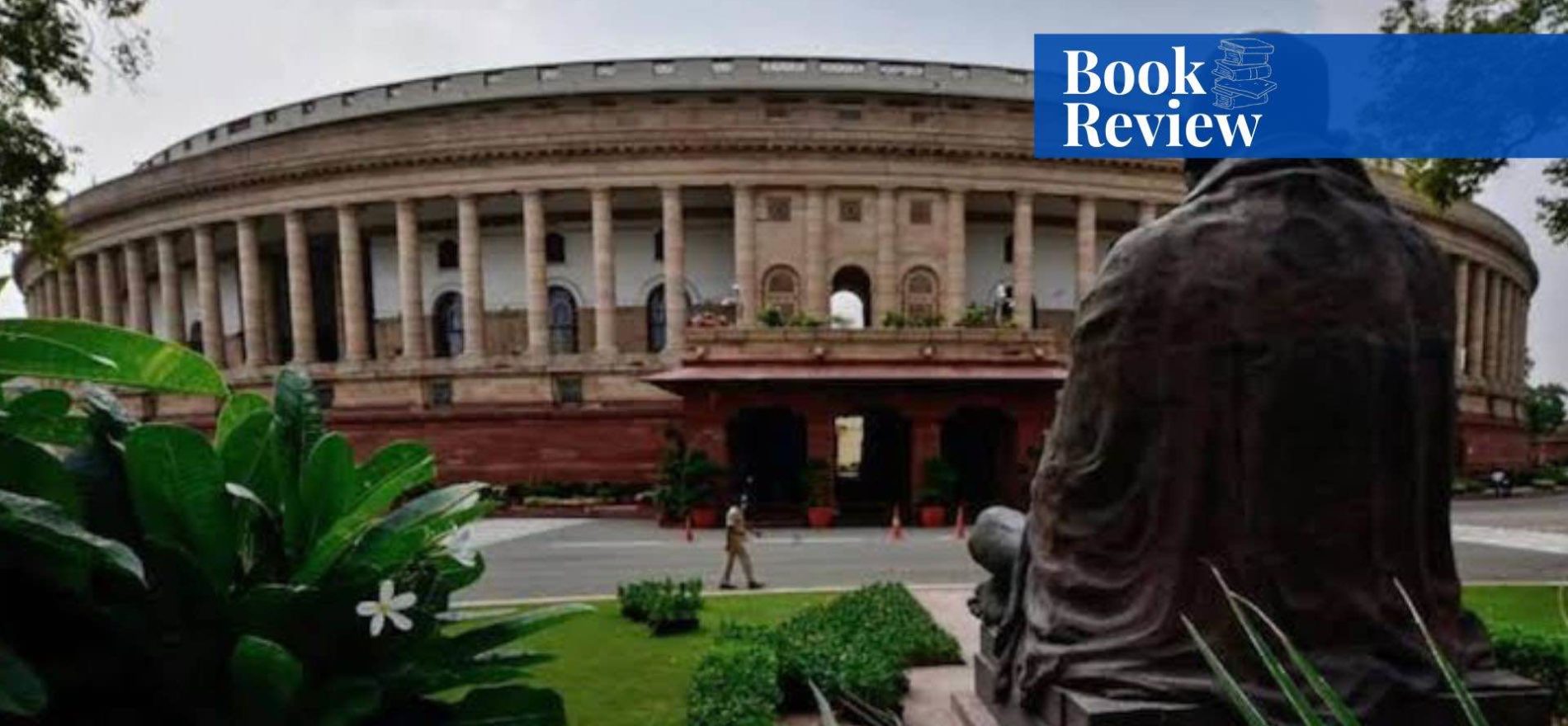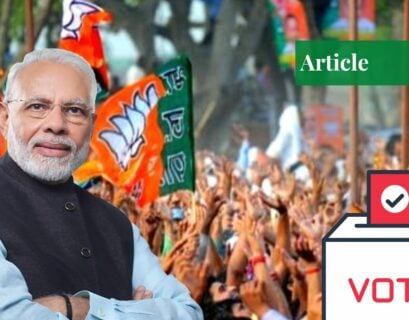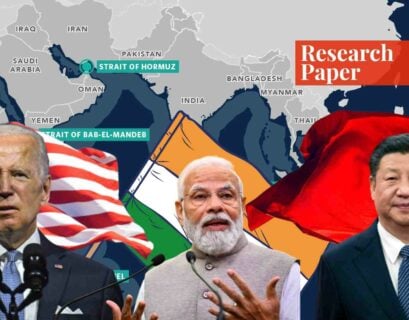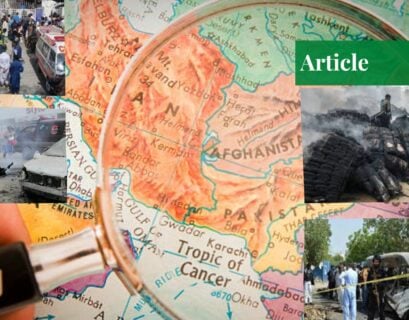Saad Ahmed Toor is an undergraduate student, studying international relations at National Defence University (NDU), Islamabad.
Josy Joseph
The book “The Silent Coup: A History of India’s Deep State” is written by Josy Joseph, who is an award-winning acclaimed author and investigative journalist based in India. Josy Joseph was born on May 6th, 1974 in Kerala, India. He is the National Security Editor of The Hindu and has also served as the editor of special projects of the Times of India, and as the associate editor of the DNA newspaper, and Rediff.com. He was also associated with the Asian Age, Delhi Mid Day, and the Blitz.
He is the founder of Confluence Media, which is a skeptic investigative journalism organization. He is the recipient of many awards and accolades which notably include the Journalist of the Year 2010 award by the Ramnath Goenka Foundation, and the Best Political Reporter 2011 award given by the Prem Bhatia Trust.
The Deep State
Joseph has written a case after a series of shocking lies and public killings by corrupt individuals at security centers. The emerging pattern is one of the systems in which these parts can transmit anything they want as intelligence to spies. This allows them to create fake stories that will suit them or their political experts. These lies are then passed on to the soft media to form a narrative, resulting in someone being tied to a false case.
In areas where uprisings are raging, the news is taking a turn for the worse. False connections are being made to ordinary people who end up being seen as terrorists. In The Silent Coup: A History of India’s Deep State, Josy Joseph introduces the argument that India’s democratic values have declined as a result of the widespread use of government agencies to further political ends.
Joseph points out that, while the Indian political elite is holding on to military might, non-military security institutions are being used by political leaders to undermine democracy for their own purposes, including silencing government critics or intimidating them. The term “deep state” in the title of this book refers to a non-military security center, which includes police, intelligence agencies, the Central Bureau of Investigation, the National Investigation Agency, the Anti-Terrorism Squad, and others such as the Enforcement Directorate, Department of Taxation.
The Case of Wahid Ali
The Silent Coup: A History of India’s Deep State is divided into two parts – the first part focuses on the case of Wahid Ali and his team and the police from the point of view of a poor Muslim with no financial or social resources. His cooperation with these organizations reveals how the story that there is a war on terror and that India has played a major role in that war has been woven and exposed to the media and society as a whole.
Many times innocent people are affected, especially Muslims, for the sake of creating a connection between terrorism and Islam. Any reference to Hindutva terrorists (say, Pragya Singh Thakur) is swept under the carpet. In the 1990s, Wahid Ali lived in a one-room shack in Rithala, on the northern edge of Delhi. He had six sisters, and a brother who had been arrested for murder. Ali was driving a taxi to support the family but money was not enough.
While he was visiting his imprisoned brother, some police officers suggested that he can make more money by being their informant. Ali, with the help of his brother, began stealing other prisoners’ information, inspecting it, and then passing it on to the police. For this, he earned Rs 7,000 a month. Gradually, he raised to prominence in the Intelligence Bureau (IB) and the Special Cell of Delhi Police, which included hiring more spies.
In December 2005, while attending a regular meeting with his IB manager, he was blindfolded and abducted by agents. Two months after their illegal detention, Ali and his cousin Kamran, whom he had summoned to be a police informant, were introduced to the media by the police as terrorists in Al-Badr. They spend ten years in prison.
In the months leading up to his arrest, he was pressured by his superiors to teach local Muslims to take up arms and pass on information. It was a simple strategy to create a fake terrorist and imprison him, ruin his life and show it to the public as a success in the war on terror. This model, to create a fraudulent or counterfeit terrorist, is among the dirty secrets of the Indian security center.
Democratic Erosion in India
The second part of The Silent Coup: A History of India’s Deep State focuses on the extremism of these organizations not only in Kashmir, Punjab, Gujarat, and the northeastern provinces but also in the civil war that took place in Sri Lanka, which led to the 1991 assassination of Rajiv Gandhi. These so-called independent parties bow to the will of the political party This is evidenced by the case of Jay Polychem in which the Punjab Police are shown making dirty bids for their wealthy masters to silence whistleblowers. And let us not even start the 2002 riots in Gujarat.
No matter how much I read about it, its instruments will never fail to impress me with the depth of corruption and hatred, and how democratic programs can be spread to destroy the lives of many to protect the few. Many of the cases Joseph listed in the book, such as the assassination of former BJP leader and Gujarat Interior Minister Haren Pandya, and the cases of Sohrabuddin, Ishrat Jahan, and Justice Loya, have already been reported in detail in the media years ago.
It is difficult, however, for a participant to follow a story from beginning to end, as it plays on the news for many years. The book, by clearly pressing a few cases into headlines, has made it easier for everyone to see clearly what has really happened. Moreover, Joseph’s understanding based on his decades-old experience as a journalist reporting to security agencies gave him a clear perspective on the collapse of national security systems.
As a result, India’s democracy is in grave danger, and the Indian constitution is left as a sacred book, like other sacred books, devoted to the worship of its members while its basic principles are not fully heeded in life. India is a democracy. This compelling book puts no emphasis on political leaders but on the poor performance of the Indian state from the police to government investigative and intelligence agencies.
Across the Mumbai train explosion, the Kashmir uprising, Gujarat’s “terrorist war” and the Delhi riots, Josy Joseph exposes corruption and the political systems running in the midst of agencies that must ensure justice and accountability and shows how this has undermined democracy. By 2020, amid the rising cases of Covid-19 in India, the pillars of India’s democracy once again faced another brutality: the arrest of activists, dissidents, and journalists against Narendra Modi’s government, some on dubious charges, and others under strict anti-terrorism laws.
Some say Modi has already perfected the art of demolishing the security center of a democratic state, making it bow to his will. With false arrests, disregard for right-wing Hindu terrorists, and an irresistible record of human rights that often rely on extrajudicial killings or false testimony, India’s domestic security institutions have become just another player in the pursuit of power.
From the Kashmir war to the Sri Lankan civil war, from the Mumbai invasion to the long-running unrest in the northeast, India’s “war on terrorism” has made its security bases nationalistic and, inevitably, extremely corrupt. At the very least, the kidnappings by security forces, whether by intelligence agencies, police, or intelligence services, are almost always by a political officer acting as an accountable soldier, rather than as a protector of the constitution.
The case of the police, internal intelligence agents, and the Indian media under the BJP which represent the collapse of national security systems – parts of which serve political agendas or business interests rather than national interests – thus jeopardize Indian democracy.
Final Thoughts
In The Silent Coup: A History of India’s Deep State, Josy Joseph investigates the decline of the Indian democracy and comes up with the important understanding that the process of dealing with the military distorts the system. In the 1980s and 1990s, the Indian security forces found it difficult to keep up with the revolution in the country. In desperation, the military, intelligence agencies, government agencies, tax departments, and the like came up with clever solutions ranging from impersonation to producing “evidence” of people’s involvement in massive terrorist attacks and even terrorist organizations.
In time, war became a lucrative, multi-faceted business. In terms of history, Joseph’s book requires a more in-depth analysis of the part of the country where the security services have been operating for the longest time—northeastern India. That is where a number of the crafty acts Joseph mentions in his book, such as the creation of imperial armies, originated.
Nonetheless, The Silent Coup is an important book that all Indians who care about their country should read if they want to understand how things really work in the dark, in the hidden corners of the world’s largest democracy. The overthrow of democracy because of the corruption of the national security system, which is reflected in ongoing issues such as the Pegasus spyware case, is a “silent coup” in the book.
If you want to submit your articles, research papers, and book reviews, please check the Submissions page.
The views and opinions expressed in this article/paper are the author’s own and do not necessarily reflect the editorial position of Paradigm Shift.


















